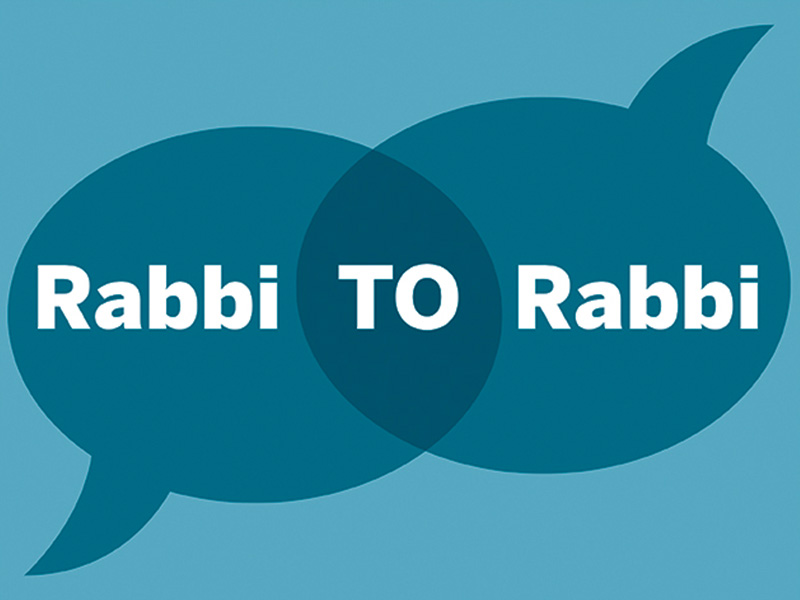Jews are a people wedded to hope, and as messy and awful as the world can be, our tradition tells us that our efforts can still make it whole
Rabbi Yael Splansky
Holy Blossom Temple, Toronto
Rabbi Mark Fishman
Congregation Beth Tikvah, Montreal
Rabbi Splansky: With so much to fear in the world today, it is hard to be hopeful. And yet, a central theme of our daily prayers is redemption.
We praise God for the precedent set by our redemption from Egypt. We pray that God will speedily redeem the People of Israel today. And we conclude each service with the hope that all the world will be redeemed, made whole.
Judaism is a messianic religion. And Jews are a people wedded to hope. True, we express it differently – some believe God will send Mashiach ben David to redeem us tomorrow, while others believe secular labour movements, human rights watches and environmental activism are the sources of redemption.
Rabbi Yehudah Tzvi Hirsch of Stretyn taught: “Each Jew has within the self an element of the Mashiach, and is required to purify and assist it to mature. Redemption will come when all Israel have brought this messianic spark to perfection within.”
Ultimately, it is a burden and a privilege to carry the weight of this process of redemption.
Rabbi Fishman: One of my favourite books on Jewish responsibility has a wonderfully provocative title: There Is No Messiah… And You’re It. The author, Rabbi Robert Levine, traces the idea of the Messiah in Judaism and concludes that each of us is an agent for bringing the world to its completion.
There can be no more optimistic belief. But how that process develops is not so simple.
One strain within our tradition believes that everything will be done for us – not only will peace, harmony and the brotherhood of man be gifted to the world, but the Third Temple will fall from the sky and land perfectly on the site of the Temple Mount.
By contrast, Maimonides, always the great rationalist, believed mankind will be the focus of the rebuilding. This more collaborative effort speaks to me much more. God is less interested in miracles and more focused on human accomplishment. Truly, the future is in our hands.
Rabbi Splansky: The Jerusalem Talmud’s tractate on prayer begins with the following exchange: at dawn, Rabbi Chiya and Rabbi Shimon ben Chalafta were walking in the valley beneath the Arbel Mountain by the Sea of Galilee. They saw the morning star’s light break through. “That,” said Rabbi Chiyah, “is like the process of redemption. First it emerges a little at a time, and the more it continues, the greater the light increases.”
I’ve climbed Mount Arbel. From its peak at daylight, the valley beneath seems to go on forever, the farms below make a lit up patchwork of green and gold, and the Kineret beyond is bright blue. But these two Sages walked in the valley before dawn – to them, Arbel must have looked imposing and bleak, casting a deep shadow on top of the darkness. Yet, they had the faith to trust that the sun would rise and the courage to draw out the metaphor.
God’s creation is sometimes predictably miraculous, other times surprisingly disastrous. Similarly, the human process of redeeming the world is sometimes predictable and sometimes surprising. The primary role of the Jew is, like those two rabbis, to always be on the lookout and never to despair.
Rabbi Fishman: Never despair, indeed.
In the song we like to teach our children, we sing that the whole world is a very narrow bridge, where the main aspect is not to be afraid. When Rabbi Nachman of Bratslav taught this idea, he touched upon one of the greatest truths in human psychology – that we all have a tendency to be afraid.
The greater the stakes, the greater the possibility for fear. And so when we look out at our world today it is understandable that getting on a plane can induce a moment of panic, and travelling by bus or even walking the streets of Israel can scare some. Add to that ever-growing list attending a concert or going out for a drink in Paris.
But as messy and awful as the world becomes, let us never be afraid to live and celebrate life. After all, our tradition reassures us that through our efforts a redeemed world can be achieved.
